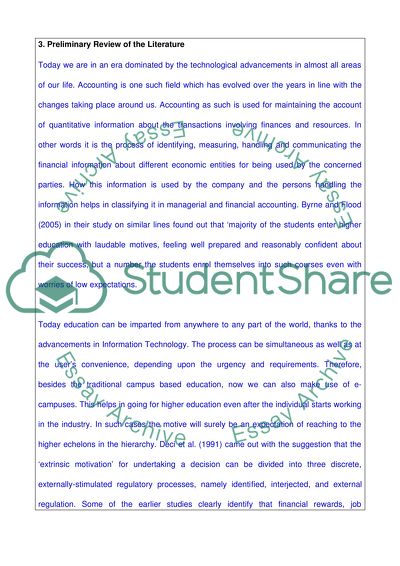Cite this document
(“The Motives, Expectations And Preparedness Of Accounting Students Research Proposal”, n.d.)
The Motives, Expectations And Preparedness Of Accounting Students Research Proposal. Retrieved from https://studentshare.org/miscellaneous/1506317-what-are-accounting-students-motives-expectations-and-preparedness-for-higher-education
The Motives, Expectations And Preparedness Of Accounting Students Research Proposal. Retrieved from https://studentshare.org/miscellaneous/1506317-what-are-accounting-students-motives-expectations-and-preparedness-for-higher-education
(The Motives, Expectations And Preparedness Of Accounting Students Research Proposal)
The Motives, Expectations And Preparedness Of Accounting Students Research Proposal. https://studentshare.org/miscellaneous/1506317-what-are-accounting-students-motives-expectations-and-preparedness-for-higher-education.
The Motives, Expectations And Preparedness Of Accounting Students Research Proposal. https://studentshare.org/miscellaneous/1506317-what-are-accounting-students-motives-expectations-and-preparedness-for-higher-education.
“The Motives, Expectations And Preparedness Of Accounting Students Research Proposal”, n.d. https://studentshare.org/miscellaneous/1506317-what-are-accounting-students-motives-expectations-and-preparedness-for-higher-education.


